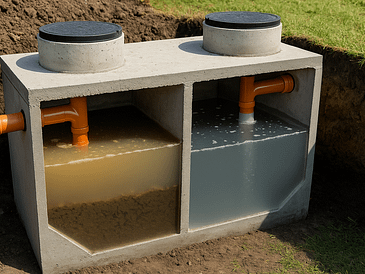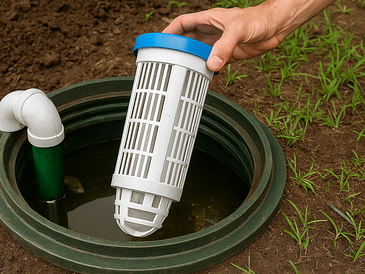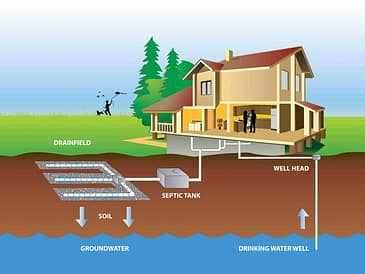
If you’re a homeowner with a septic system, you need to be extra careful about what you wash down the drain. This includes laundry soap, toilet bowl cleaners and more.
Most household cleaners contain phosphates and surfactants that can saturate the septic tank and clog the pipes. These chemicals also kill the useful bacteria that help a septic system work.
Vermont Soap
If you’re looking for an organic soap that is also septic safe, Vermont Soap is the place to shop. They produce a variety of products including organic soaps, shower gels and more. They do not use any petrochemicals or chemicals and are a good option for sensitive skin.
The owner, Larry Plesent, has been in the business of creating natural products for almost 30 years. He has made a point to prioritize the people who work for him, treating them well and giving them what they need.
He firmly believes in a holistic approach to creating products. This means taking the time to understand the processes involved in manufacturing natural and organic products and making sure they are produced in a way that is environmentally friendly.
It’s a way of thinking that has been shaped by a lot of research and experience. For example, he has done extensive research on the benefits of shea butter, including the anti-inflammatory properties it contains. Shea butter is also used as a moisturizer for dry skin and can help prevent wrinkles.
When he’s not busy at Vermont Soap, Plesent works on sustainable energy initiatives as a part of his overall eco-friendly lifestyle. His factory uses solar panels and he is very careful to ensure that all of his products are made with certified organic ingredients.
Besides working with clean energy, Plesent also pays attention to the environment by using natural materials for packaging and labels, which are printed on 100% recycled paper. He also recycles his waste and composts it when possible.
His goal is to create a company that will inspire others to make a change in their lives by making the transition to using more natural products. He has created a website and a blog to educate his customers about the benefits of natural and organic products, and he offers many different options for those looking to make the switch to healthier alternatives.
The company has been able to grow and become successful because they take the time to make sure their products are made from high quality ingredients. They also focus on hiring people who are passionate about their work. They have a strong commitment to organic manufacturing and support local jobs by buying ingredients from organic farmers all over the world.
Right to Shower
Access to showers is a fundamental human right that everyone should have, yet many people experiencing homelessness lack access to the water and sanitation they need. Ensuring that individuals who experience homelessness have access to showering is vital to their health and hygiene and can help prevent ectoparasite infestations like scabies, lice and fleas.
In a recent study, individuals who took infrequent showers were found to be more at risk of ectoparasite infestations than those who took regular showers. The study also revealed that those with infrequent access to clean water were more likely to experience other infections and illnesses such as bacterial skin infections.
Fortunately, there are a few shampoos and soaps that you can use that have been specially formulated to be safe for your septic system. These products do not kill off the bacteria that break down waste in your septic tank or clog up the system.
A septic system is a wastewater treatment system that treats household waste and sends it out into the surrounding environment. A septic tank is the primary way that most homes treat their waste and is located beneath the ground, usually next to the house.
To protect septic systems, you should avoid toilet paper, feminine products, hair care products, and paper towels that are too heavy for your system to handle. You should also avoid flushing any liquid bleach, disinfectant cleaners or drain cleaners because these substances can destroy the bacteria in your system and shorten its life span.
The Right to Shower is a new line of head-to-toe cleaners that was developed as a social enterprise by Unilever, and 100% of profits will be donated to mobile shower organizations around the country in 2019 to help those who are homeless gain access to a clean, safe shower every day. Founded on the belief that access to a simple shower can make a huge difference in an individual’s health and wellbeing, The Right to Shower’s social enterprise model enables Unilever to drive social change while building a sustainable business.
NeverScrub
Septic systems are delicate and can be damaged by the wrong cleaning products. The best way to keep your septic system healthy and working properly is to avoid using cleaning products that contain synthetic chemicals. These can clog the septic tank and cause it to overflow, or worse, cause a backup.
Fortunately, there are many products that are safe for septic systems and are eco-friendly. Some of these include septic-safe laundry detergent, toilet bowl cleaners, and dish soap.
When shopping for septic-safe laundry detergent, look for those that have low levels of surfactants. These are the synthetic chemical ingredients that create foam and suds. They can also be found in anti-bacterial soaps and disinfectants.
For a septic-safe toilet bowl cleaner, look for a product with no dyes or fragrances, and that is hypoallergenic. This is particularly important for those with sensitive skin, as these types of soaps may irritate it.
You can also find septic-safe dish soaps that are made with natural ingredients and do not contain harsh chemicals. These natural soaps are gentle enough to be used on baby clothes and are a good choice for those with allergies or eczema.
The best septic-safe dish soaps are ones that are formulated for both HE and standard washing machines. They should also have no dyes or fragrances, and be phosphate-free.
In addition, you can use septic-safe laundry detergent for both HE and standard washing machines. A septic-safe detergent can also help prevent septic tank back-ups.
It is always best to choose products that are verified by a third-party organization such as Ecocert or The Environmental Working Group, as they will tell you whether the product is safe for your septic system and the environment.
This is especially important for those with septic tanks, since the wrong detergents can overflow or leak and cause problems. It is also a good idea to purchase products that are biodegradable, such as those with petrochemicals.
You can also look for septic-safe dish soaps that will not damage your septic system, like Finish Quantum. These fast-dissolving tablets have 3 power actions to remove food residue and grease, while leaving dishes shinny and sparkling.
Aero-Clean
Aero-Clean is a septic safe laundry detergent that uses ozone and oxygen to clean your clothes without harsh soaps or chemicals. It also disinfects your fabrics and can be used as a fabric softener. It is an American-made product that has been trusted since 1906.
If you use a septic tank, it is important to remember that these systems depend on healthy bacteria to break down waste. Harsh or toxic soaps can interfere with the natural bacterial action and harm the system.
The best types of soap to use in a septic tank are mild dish detergents and hand soaps that do not contain antibacterial ingredients. Some people might also choose to avoid liquid laundry detergents as these can clog the drain pipes in a septic tank.
Other products that should be avoided in a septic tank include soaps that are scented or contain perfume, detergents that are made with artificial dyes or fragrances, and laundry detergents that contain petrochemicals. All of these substances will harm the natural bacteria that are present in a septic system, and may not be biodegradable.
Another product that should be avoided in a septic system is grease, oils and carbonaceous soils. These materials can clog the drain pipe in a septic tank and cause the tank to fail.
Grease and oils are not a good choice in a septic tank as they can be difficult for the bacteria to break down and will clog up your system. Oils can also be hard on the lining of your septic tank, and they can irritate the drain pipes and make them harder to clean.
Aside from putting grease down the drain, dryer paper and other paper products should be avoided as well. These paper products might jam up the drain pipes and make it difficult to flush them down the toilet.
Rather than pouring these types of products down the drain, it might be better to simply throw them in a trash can or compost bin. This is a much easier way to dispose of these items, and will not have the same negative effects on your septic system.




